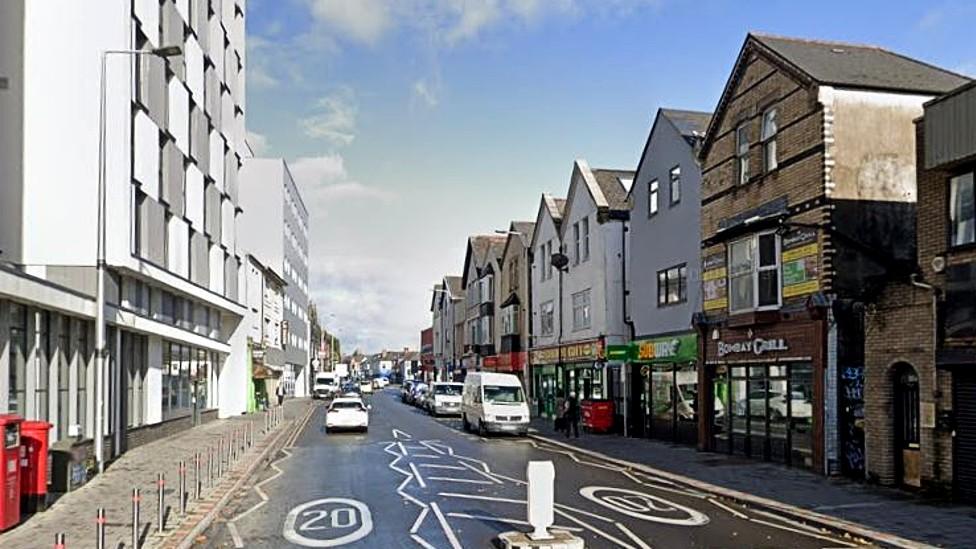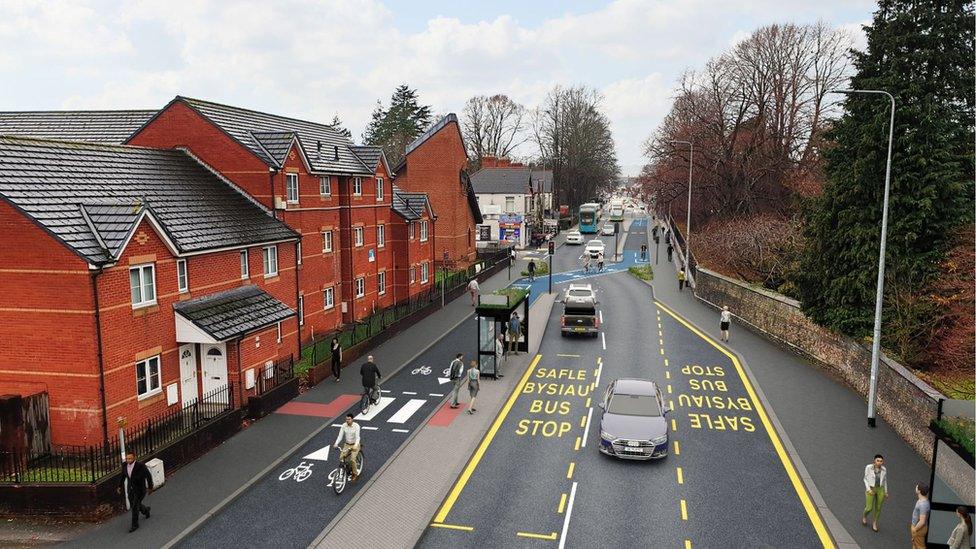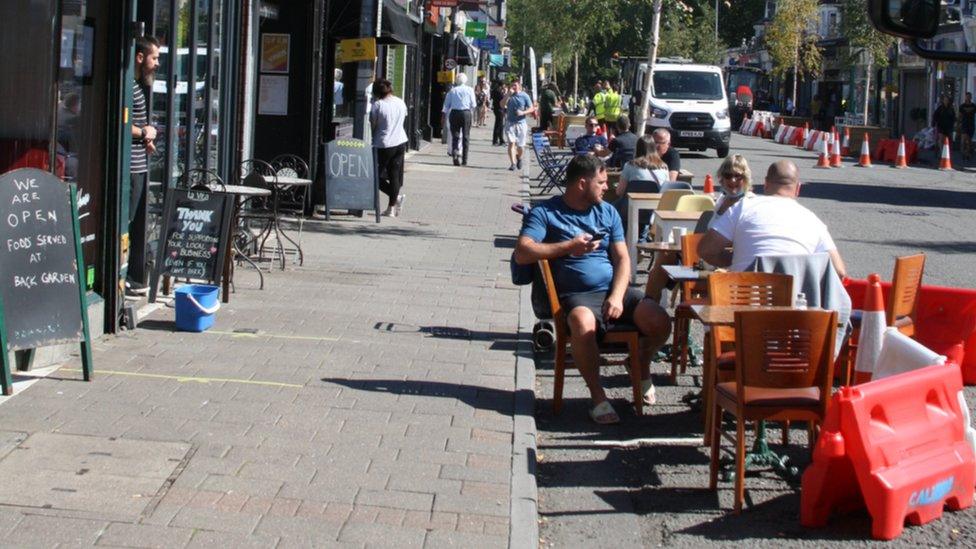Cardiff drivers face £70 fine in pavement no-parking zone
- Published

The road is a popular shopping and dining destination
Drivers who park on the pavement along a Cardiff road will face an automatic £70 fine as part of a pilot scheme to keep walkways clear.
Cardiff council is running the 18-month test on City Road in Roath in a bid to improve accessibility for pedestrians and boost active travel.
It is usually not illegal to park on a pavement unless causing an obstruction, which can only be decided by police.
Civil enforcement officers will now be able to issue fines on City Road.
The council said parking on the pavements there had been an issue for some time, but could not be restricted unless there were double yellow lines on the road or a specific "no-parking zone" was in place.
Dan De'Ath, who represents the Plasnewydd ward on Cardiff council where City Road is located, told BBC Radio Wales the volume of cars parked on pavements there made it difficult for some pedestrians to use.
"City Road is a really popular road. Lots of people visit, but it's really hard to navigate the pavements because of the huge volume of cars parked along there, and if you're a young mum with a pushchair, if you're visually impaired, or a wheelchair user, it's really difficult to get down there and we don't think it's acceptable," he said.
"We'll be using traffic wardens to go up and down. We'll also be utilising CCTV cameras which can catch people's licence plates.
"As a council we want to make Cardiff one of the best cities in the UK to walk, cycle and travel actively [in], and this is part of a range of measures we're bringing in to make the city more pedestrian friendly."
According to the council, pavement parking is legal in most of the UK outside London and Scotland in the absence of a specific legal order.
It said a consultation on the plans had found 70% of people in favour of the move, with 73% saying banning pavement parking would make them more inclined to walk and "do things on foot" in the area.
A spokesperson said the scheme would be closely monitored to see if it improved the problem and if successful could be rolled out to other areas experiencing similar issues.
- Published2 August 2020

- Published19 August 2020

- Published29 June 2020

- Published15 May 2021
